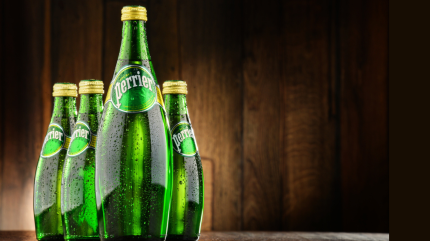
Nestlé has reiterated in a post-results call that it is not planning to sell off its water business but is seeking partners to work with.
Confirming its previously-stated position, the S. Pellegrino and Perrier brands owner’s CEO Laurent Freixe said: “We are committed to the space and committed to the brands.
“There will be no outright sale but we would welcome some sort of partnership…..we look for partnership to realise the potential of the category.”
In November, Nestlé announced it planned to separate its water and “premium beverages” activities into a global stand-alone business from the start of 2025.
Nestlé said then that new management of the drinks assets would “evaluate the strategy” for the business, including “exploring partnership opportunities”.
The company is still embroiled in difficulties surrounding its mineral water site in Vergèze, France.
Last April, it suspended a well at the site, which is used to supply Perrier bottled water, as a result of contamination.
In December, the regional health agency, Agence Régional de Santé Occitanie (ARS), said Nestlé should consider ending production at the Vergèze site due to health risks
Nestlé said at the time the report “does not constitute a definitive recommendation on the operating conditions of our mineral water site in Vergèze”.
Speaking to reporters today (13 February), Freixe said: “We call for a technical debate, a need to address this issue.”
He added: “This is not just a Nestlé thing but an industry issue.”
On another potential business risk, Freixe said on the call that Nestlé is largely “immune” to tariffs because of its model of producing food and beverages at a local level.
US President Donald Trump has threatened tariffs on imports into the US, which has led to companies examining their exposure to taxes on exports and cross-border supply chain models, but Switzerland-based Nestlé suggested this is not a major concern for the business.
The Vittel owner’s CEO said on the full-year 2024 results call that while it is monitoring the tariffs situation on a daily basis, “we are in a unique, privileged position, which gives us significant resilience to significant movements”.
He added: “We produce where we sell. Almost everything we sell we make in that given geography – 90% of what we sell in the US is made in the US and so is immune to tariffs. It is the same in China and Europe.”
Asked about the risk from tariffs to materials used for its products, CFO Anna Manz said it had a “lot of mechanics” at the local level that could be employed if it needs to change its sourcing.
But she admitted that the company’s guidance for this year – to improve organic net sales compared to 2024 – “excludes the impact of tariffs”.
She added: “Tariff moves could change the inflation picture considerably.”
In prepared remarks earlier, Freixe, who became CEO in September, described the company’s full-year 2024 performance as “solid” in light of a “challenging macro-economic context and soft consumer environment”.
Organic net sales grew by 2.2% year-on-year to SFr91.4bn ($100.8bn), led by coffee, confectionery and pet care, and driven by performances in emerging markets and Europe. Net profit was down 2.9% at SFr10.9bn.
The company has launched a three-year cost saving strategy – the Operational Master Plan – which is intended to save the company SFr2.5bn by the end of 2027.
Freixe told reporters: “We are on a journey. It will take time until we are firing on all cylinders.”
Three-quarters of the total savings are expected to come from procurement, notably driven by AI, supplier management and spend consolidation.
Nestlé’s pared its pricing to 1.5% in 2024, from 7.5% the prior year, which Manz said “reflected a reduction in input-cost inflation”.
But she said that the company will need to take further pricing action because of “significant inflationary pressure in cocoa and coffee”.
The company’s pricing in North America was just 0.4%, reflecting a tough operating environment.
Manz said: “Growth was disappointing in North America.”
Freixe outlined supply constraints there in coffee creamers, amongst other issues.
Commenting on Nestlé’s performance, analysts at investment bank Stifel said: “We believe [the] FY-24 results were reassuring overall. The targets look more and more credible to us with top-line acceleration at the end of the year and comprehensive details on the cost-savings initiatives.”



